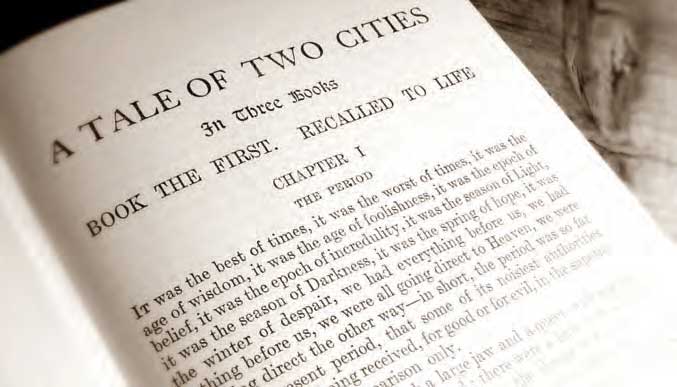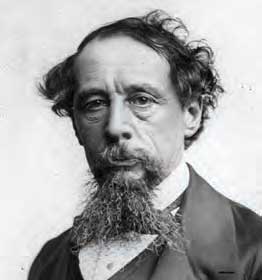
Charles Dickens, in his remarkable story, A Tale of Two Cities,
wrote:
It was the best of times, it was the worst of times,
it was the age of wisdom, it was the age of foolishness,
it was the epoch of belief, it was the epoch of incredulity,
it was the season of Light, it was the season of Darkness,
it was the spring of hope, it was the winter of despair,
we had everything before us, we had nothing before us,
we were all going direct to Heaven,
we were all going directly the other way—
in short, the period was so far like the present period,
that some of its noisiest authorities insisted on its being received,
for good or for evil, in the superlative degree of comparison only.
This great novel unfolds the loving sacrifice one man-made for another. Sidney Carton, bearing a remarkable likeness to the imprisoned Charles Darnay facing imminent death, made a prison swap and substituted himself for Darnay, stepping to the French Revolution guillotine. Carton’s love was not so directly at Darnay as it was to his beautiful wife who chose Darnay in marriage, not Carton. What must Carton have been thinking as his time of death arrived? Here is what is recorded:
I see the lives for which I lay down my life, peaceful, useful, prosperous and happy, in that England which I shall see no more. I see her with a child upon her bosom, who bears my name. I see her father, aged and bent, but otherwise restored, and faithful to all men in his healing office, and at peace.
I see that I hold a sanctuary in their hearts, and in the hearts of their descendants, generations hence. I see her, an old woman, weeping for me on the anniversary of this day. I see her and her husband, their course done, lying side by side in their last earthly bed, and I know that each was not more honored and held sacred in the other’s soul, than I was in the souls of both.

I see that child who lay upon her bosom and who bore my name, a man winning his way up in that path of life which once was mine. I see him winning it so well, that my name is made illustrious there by the light of his. I see the blots I threw upon it, faded away. I see him, fore-most of just judges and honored men, bringing a boy of my name, with a forehead that I know and golden hair, to this place—then fair to look upon, with not a trace of this day’s disfigurement—and I hear him tell the child my story, with a tender and a faltering voice.
It is a far, far better thing that I do, than I have ever done; it is a far, far better rest that I go to than I have ever known.
Carton tearfully hears the execution of the seamstress who had traveled with him to the place of death and who recognized he was not really the Darnay condemned to death. He is then pushed towards the slot where the blade would fall.
How you draw good out of evil. Think not only of the past and the dangerous now but of the joyful future to come. Too often the world threatens to crush us. Our problems seem much greater than any solution.
Dickens is so right. Today is like the day he wrote about. Is our life making any difference? Are we making any sacrifice, whether great or small? It may not be as monumental as Carton’s but it can make a change now and in the future.
Our Lord has set the pattern. Simply read Isaiah 53:4-12, Ephesians 5:2,I John 2:2 and many more scripture texts that declare the density and vastness of the Lord’s loving sacrifice.
Ask Him for strength to follow His example. You may be writing a new novel!
Till next time, Don Johnson, Kirby Pines Chaplain





 © 2025 Kirby Pines LifeCare Community. All Rights Reserved |
© 2025 Kirby Pines LifeCare Community. All Rights Reserved | 